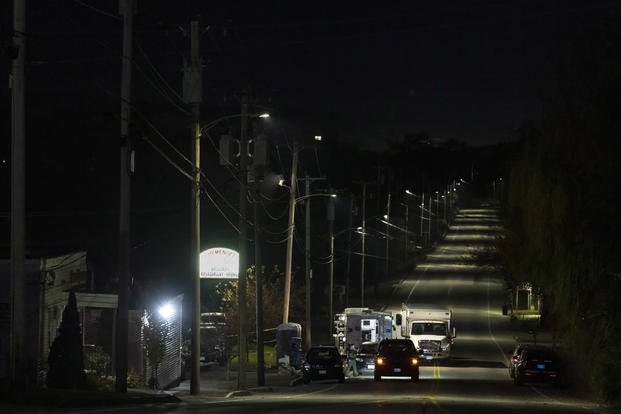PORTLAND, Maine -- A tissue sample from the brain of a gunman who killed 18 people and injured 13 others in Maine has been sent to a lab in Massachusetts to be examined for signs of injury or trauma related to his service in the Army Reserves, officials said Monday.
The state's chief medical examiner wants to know if a brain injury stemming from 40-year-old Robert Card's military service could have contributed to unusual behavior he exhibited leading up to the Oct. 25 shootings at a bowling alley and at a bar in Lewiston .
A spokesperson for the medical examiner's office characterized the extra step as a matter of thoroughness "due to the combined history of military experience and actions."
"In an event such as this, people are left with more questions than answers. It is our belief that if we can conduct testing (in-house or outsourced) that may shed light on some of those answers, we have a responsibility to do that," Lindsey Chasteen, office administrator, wrote in an email.
The gunman's body was found two days after the shootings in a nearby town. The medical examiner already concluded that Card died by suicide.
The tissue samples, first reported by The New York Times, were sent to a laboratory at Boston University that specializes in problems associated with brain trauma, including chronic traumatic encephalopathy, or CTE, which has plagued many professional football players. A spokesperson said the CTE Center cannot comment without the family's permission. Two family members didn't immediately respond to a request for comment from The Associated Press.
The concerns surround Card's exposure to repeated blasts while training U.S. Military Academy cadets about guns, anti-tank weapons and grenades at West Point, New York.
Family members reported that Card had sunk into paranoid and delusional behavior that preceded him being hospitalized for two weeks last summer during training with fellow reservists at West Point. Among other things, Card thought others were accusing him of being a pedophile.
His fellow soldiers were concerned enough that his access to weapons was restricted when he left the hospital. At least one of the reservists specifically expressed concerns of a mass shooting.
New York and Maine both have laws that can lead to removal of weapons for someone who's experiencing a mental health crisis, but those laws were not invoked to take his guns.
Law enforcement officials in Maine were warned about concerns from Card's fellow reservists. But Card didn't answer the door at his Bowdoin home when deputies attempted to check on his well-being several weeks before the shootings.











